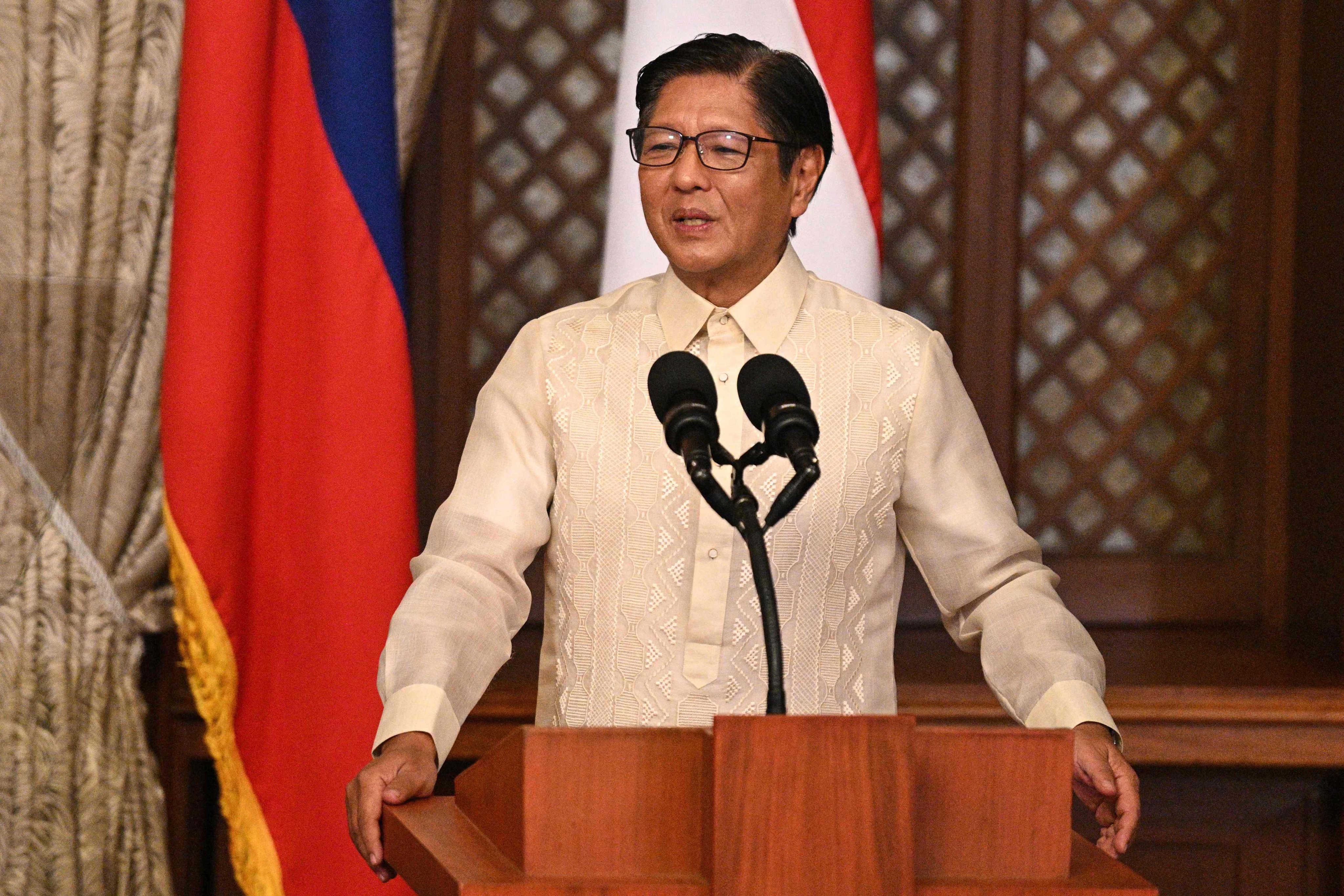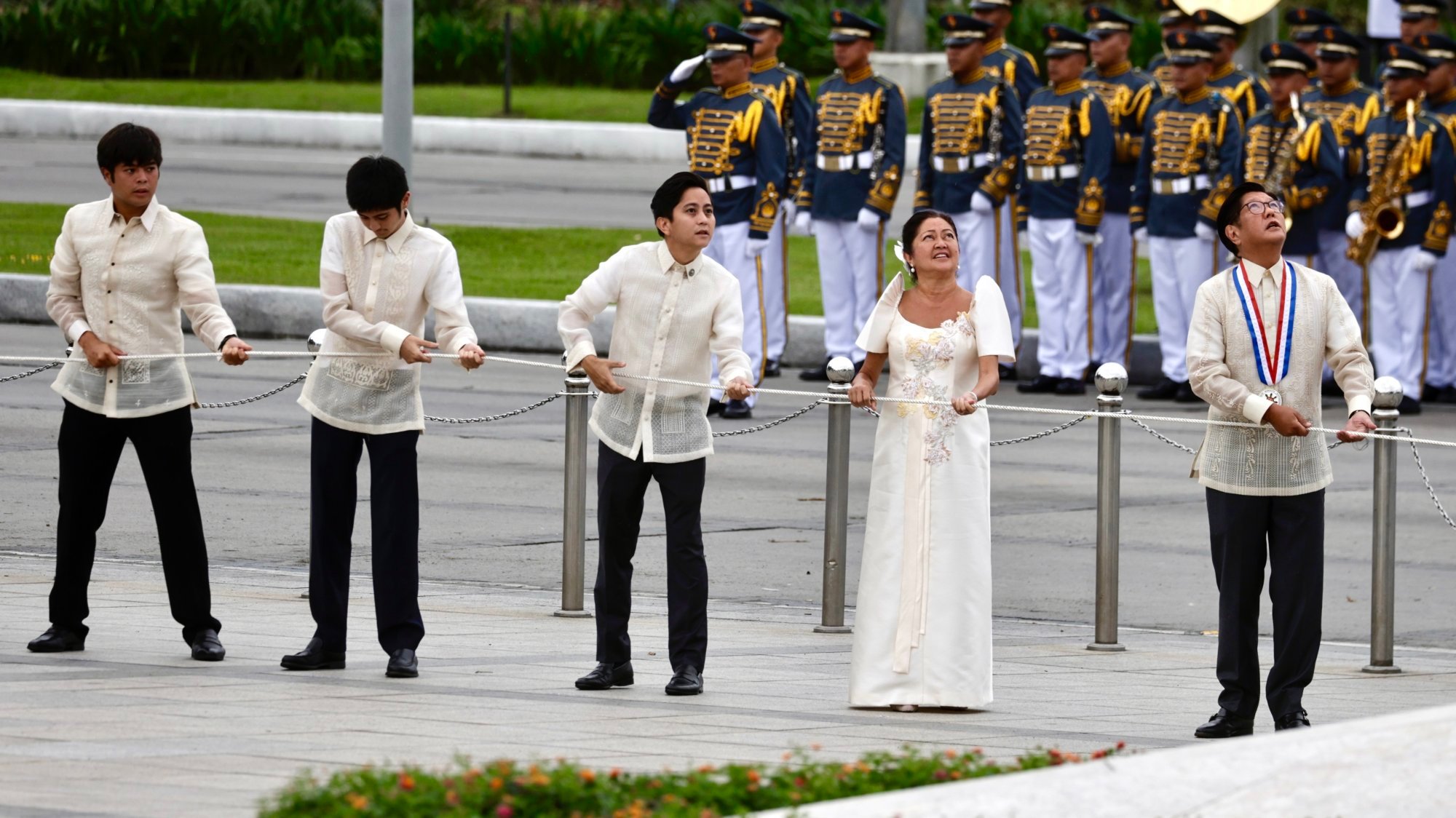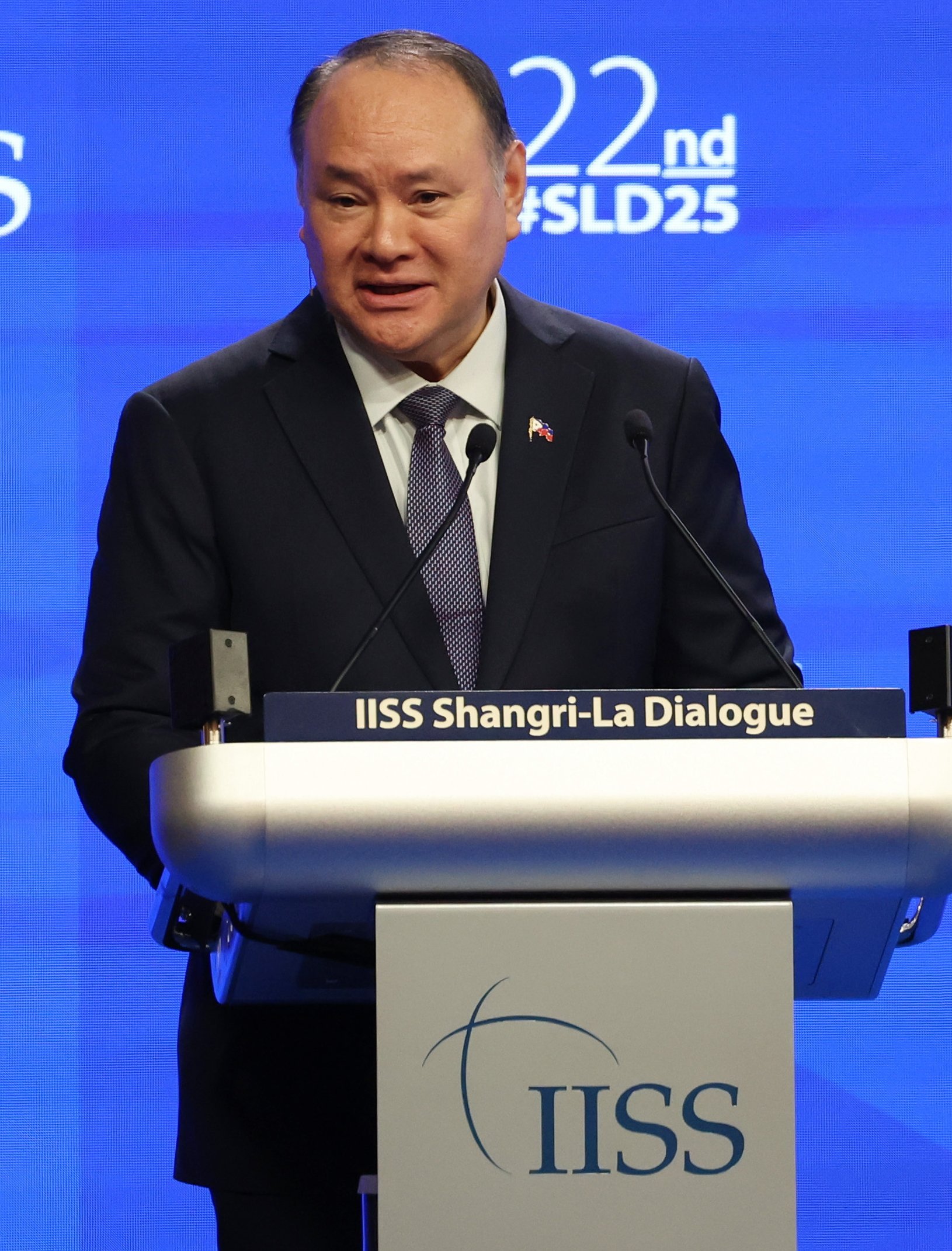Philippines’ Marcos softens stance amid economic pressures but will China bite?
The Philippine president’s close ties with the US could prove a stumbling block to better relations with Beijing, observers say

President Ferdinand Marcos Jnr’s recent call to Filipino-Chinese businessmen to boost Manila’s bilateral ties with Beijing has raised the possibility that the Philippine leader is softening his stance on China.
However, while the president’s sudden pivot could signal a recalibration of his approach, observers say the move is unlikely to yield any results in the near term because of his earlier hardline policy, including a statement earlier this month by his defence chief at a major security summit in Singapore.
At an oath-taking ceremony of 265 newly elected officers of the Federation of Filipino-Chinese Chambers of Commerce and Industry Inc at the group’s office in Manila on Tuesday, Marcos urged business leaders to promote the country as a “dependable economic partner” to China.
“You are uniquely positioned to help deepen our international partnerships, particularly, of course, with China. Stronger ties mean better trade, greater investments, and enhanced collaboration,” the president said.
“Our story is shaped not just by treaties or official documents, but by consistent cooperation: relief efforts in times of crisis, educational initiatives, cultural exchanges and economic ventures.”

Wilson Lee Flores, a political-economic analyst and honorary chairman of the Anvil Business Club in Manila who attended the event, said traders were surprised by the president’s tone.
Days earlier, Marcos also had sugar-coated words for the Chinese ambassador in Manila, he said. “He was very friendly with the ambassador, and his speech struck a cordial tone. He asked for help in strengthening ties with China, but that’s not the federation’s main focus. It seems he’s recalibrating his policy.”
According to Flores, “China is sceptical of countries that keep on talking nice words and diplomacy but play out differently. I hope not, but to me, that’s good news compared to negative actions and negative words.”
In January, Marcos hit out at China, taking issue with Beijing’s comments over the deployment of US Typhon missile launchers used in joint drills with the Philippines. The arsenal has been a sore point for Beijing amid the regional superpower rivalry.
“We don’t make any comments on their missile systems and their missile systems are a thousand times more powerful than what we have,” Marcos said. He offered to remove the mid-range Typhon system only if Beijing ceased its “aggressive and coercive behaviour” in the South China Sea.
Economic factors could be at play behind Marcos’ apparent shift, said Ramon Beleno III, head of the political science and history department at Ateneo de Davao University. In the coming months, according to Beleno, Manila is expected to face a mounting budget deficit, which could further drag down Marcos’ popularity ratings.
A recent survey by market researcher OCTA showed the president’s performance and trust ratings dipping to 60 per cent and 59 per cent, respectively, in April, down from 65 per cent and 64 per cent in late 2024. In contrast, Vice-President Sara Duterte’s performance and trust ratings were at 58 per cent and 56 per cent, respectively, up from 49 per cent and 48 per cent.
Foreign investment pledges in the Philippines dropped by 82 per cent in the first quarter of this year, falling to 27.99 billion pesos (US$5 billion) from 155.26 billion pesos last year, according to the Philippine Statistics Authority. The sharp decline is due to investor caution over global and local challenges.
“This is the effect also of our dispute with China. The Chinese investors have no more interest in putting up business in the country,” Beleno told This Week in Asia.
“I think [Filipino politicians] are also starting to feel the consequences of distancing themselves from China. I can see the worst effect would be on investment, considering China is our largest trading partner aside from the US. That’s the reason why he is reaching out to the Chinese community.”
When he won the presidential race in 2022, Marcos embraced the United States and other democratic allies, allowing American bases in the country and disregarding predecessor Rodrigo Duterte’s favourable policy towards China.
Marcos also issued strong pronouncements on disputes in the South China Sea and promised not to abandon “even one square inch” of Philippine territory there to any foreign power.
At the Shangri-La Dialogue on June 1, Defence Secretary Gilberto Teodoro Jnr repeated Marcos’ hardline stance.
“China has a lot of trust building to do,” he said in his speech. “To be an effective negotiating partner in dispute settlement, we have to call a spade a spade. And that’s what we see. And that is the biggest stumbling block to dispute resolution or dialogue with China.”
Balancing trade and defence
“If Chinese leaders hear his appeal, I won’t be surprised if there are conditions coming from China if both nations return to the negotiating table,” Beleno said, pointing also to other pressure points such as four new military-site accesses given to the US in 2023, on top of an existing five under the Enhanced Defence Cooperation Agreement.
In wanting to grow economic clout with China while building defences against its military power, Manila was no different from countries such as Australia, Japan and even the US, Chris Gardiner, CEO of the Institute for Regional Security, told This Week in Asia.
“It’s the greatest challenge of the 21st century in the Indo-Pacific,” Gardiner said. “China is both strategic and tactical in economic policy, and can be pragmatic. It uses growing dependence on its trade coercively from time to time as part of broader political and strategic strategy. Every country trading with China must manage this risk.”

Teddy Casiño, former congressman from the opposition party-list group Bayan Muna, said that while there might be disagreements with China, it was important that the overall relationship was not solely defined by the maritime row.
“If the objective is to have better ties with China, those will remain token and empty gestures as long as the Philippines lacks a truly independent foreign policy,” Casiño warned. “While [Marcos] is saying all those words, in terms of actions, he is is closer to the US. I don’t think China will buy that.”
He expressed hope that the recalibration would mean Marcos would seek stronger economic ties with China as a balm to soothe military and territorial tensions.
“But it’s always a two-way street. If China continues to insist on its indisputable sovereignty over the Philippines’ exclusive economic zone, it would be unfair for them to expect improved relations.”